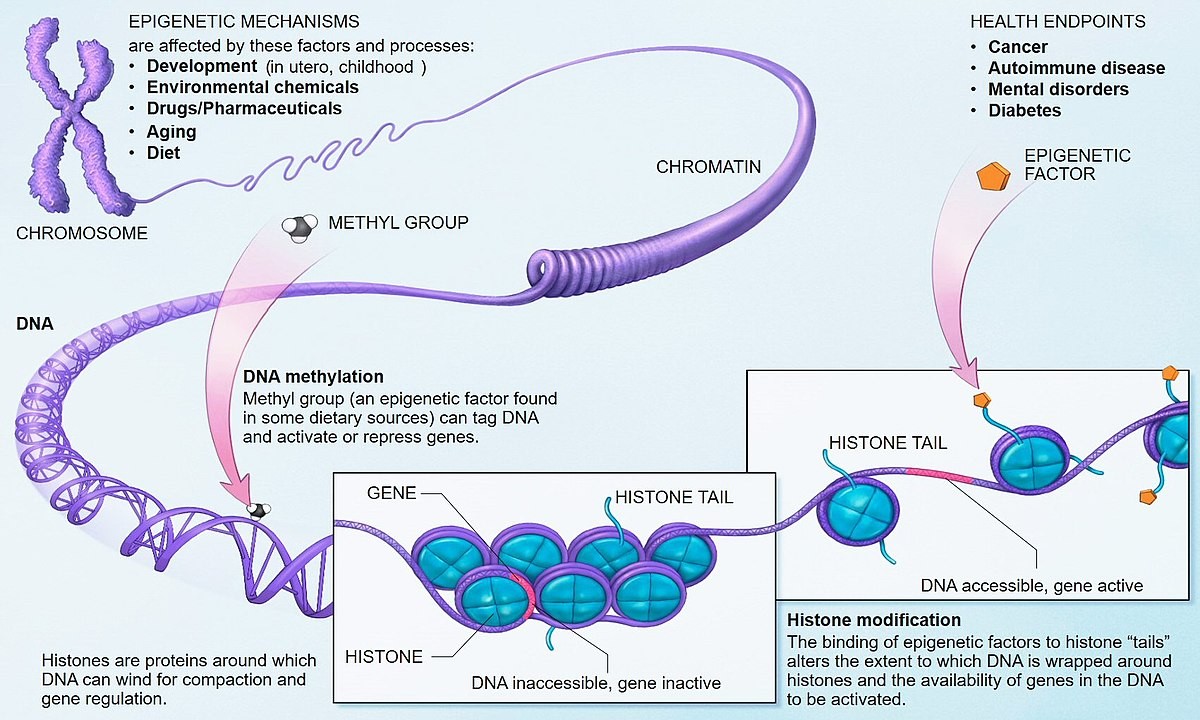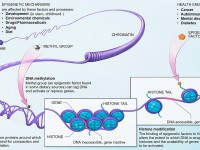What are epigenetics?
In biology, epigenetics is the study of heritable phenotype changes that do not involve alterations in the DNA sequence.

The term also refers to the changes themselves: functionally relevant changes to the genome that do not involve a change in the nucleotide sequence. Examples of mechanisms that produce such changes are DNA methylation and histone modification, each of which alters how genes are expressed without altering the underlying DNA sequence. Gene expression can be controlled through the action of repressor proteins that attach to silencer regions of the DNA. These epigenetic changes may last through cell divisions for the duration of the cell's life, and may also last for multiple generations, even though they do not involve changes in the underlying DNA sequence of the organism; instead, non-genetic factors cause the organism's genes to behave (or "express themselves") differently.
The MTHFR aberrant promoter hypermethylation is associated with male infertility. Furthermore, this improper epigenetic phenomenon was observed in semen samples of infertile males belonging to couples with an history of recurrent spontaneous abortion. The MTHFR improper promoter hypermethylation may affect the two essential roles of DNA methylation in spermatogenetic cells, the global genome methylation process and the genomic imprinting of paternal genes. In addition, MTHFR gene promoter hypermethylation has also been associated with methylation loss at H19 imprinted gene in semen samples from infertile males.
So is there a possible gene linkage between the MTHFR region and something that determines negative blood type?
Let's look at the locations of the RHCE and the MTHFR genes:
Both are very close to each others on chromosome 1. It's very possible they assort together.

